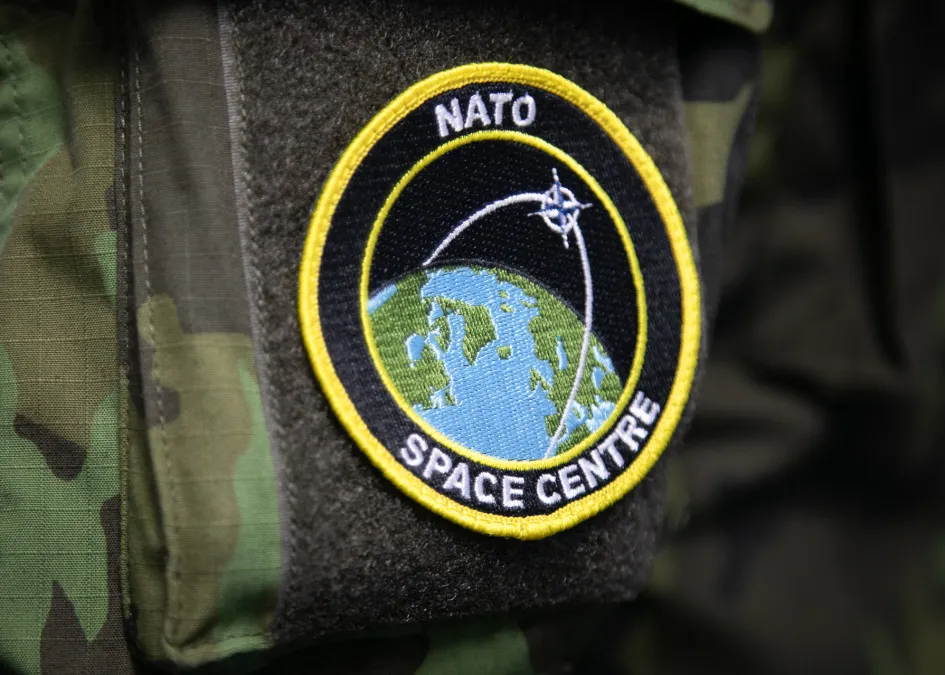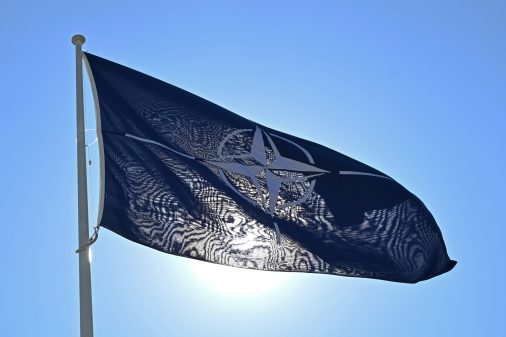NATO countries move to strengthen ability to collect, share space-based data

A group of NATO countries are set to begin implementing a new project aimed at improving the alliance’s ability to quickly share intelligence gathered by space-based assets operated by both member nations and the commercial sector.
Seventeen NATO members signed a memorandum of understanding for the Alliance Persistence Surveillance from Space (APSS) program as part of the annual NATO summit being held in Washington this week, the alliance announced Tuesday. Members will now move into a five-year implementation phase of the project, during which allies will contribute more than $1 billion “to leverage commercial and national space assets, and to expand advanced exploitation capacities,” according to a press release.
The United States is one of the nations signed onto the initiative, as well as Belgium, Canada, Denmark, Finland, France, Germany, Greece, Hungary, Italy, Luxembourg, the Netherlands, Norway, Poland, Romania, Sweden and Turkey, according to a NATO source.
The transatlantic organization created APSS last year with the intent to establish a “virtual constellation” — dubbed Aquila — comprising both national and commercial space systems, sensors and data that can be used by NATO’s command structure and other allies. The project is considered “the largest multinational investment in space-based capabilities” in the alliance’s history, and is set to increase NATO’s ability “to monitor activities on the ground and at sea with unprecedented accuracy and timeliness,” a press release stated.
Participating nations will be able to use their own space systems, provide tools for intelligence collection and analysis, or purchase space-based data gathered by commercial constellations.
“Integrating and exploiting data from space effectively has been a growing challenge over time,” a NATO press release stated. “By leveraging latest technologies from industry, APSS will help advance NATO’s innovation agenda and offer a new platform to engage with the growing space industry.”
The APSS project is part of the larger implementation of NATO’s overarching space policy adopted in 2019, which officially recognized space as a new operational domain. Since then, the alliance has worked to bolster its presence in space — including the establishment of a NATO Space Centre in 2020 and approval of an official Space Branch within the Allied Command Transformation in June.
In the United States, leaders across the Space Force have emphasized the importance of better collaboration with its international allies and partners in space as adversaries like China and Russia continue to grow their own presence in the domain.
“We are strengthening our international efforts on space control, space cooperation and space classification to increase communication and collaboration [and to] prevent a disaster in space,” Chief of Space Operations Gen. Chance Saltzman said in April during his keynote speech at the annual Space Symposium. “This includes full spectrum collaboration with our allies and industry — planning, operations, situational awareness, information sharing, capability development and everything in between.”
At the same time, other NATO members have been increasing their own investments in space capabilities. Luxembourg has notably led the APSS effort, having already contributed at least 16.5 million euros — or around $17.8 million — to lay the foundation for the program, according to NATO.






